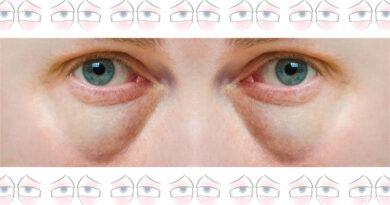Big Vaccine Loopholes Make Scary Measles Return To Schools
By WFY Bureau Desk | HEALTH AND WELLNESS | August 2025 Edition
Health at Risk: Rise in Vaccine Exemptions Fuels Measles Threat Among U.S. Children
The United States has reached a troubling new milestone in public health: a record number of kindergartners entering school without full vaccination coverage, particularly for the highly contagious measles virus. As the number of vaccine exemptions continues to rise, health experts warn that communities may be edging dangerously close to losing herd immunity, a vital public safeguard that protects those most vulnerable to disease.
This worrying development comes amid a larger trend that spans years, not months.
Vaccination coverage, once a proud public health success story in the United States, has been in slow but steady decline in many parts of the country. Now, paired with a rise in vaccine-preventable disease outbreaks, most notably measles, this trend poses renewed challenges for schools, communities, and health policymakers.
The Numbers Behind the Alarming Trend
According to the latest data from the U.S. Centers for Disease Control and Prevention (CDC), about 3.6% of kindergartners entering the 2024–25 school year had an exemption for at least one state-mandated vaccine. That equates to roughly 138,000 children not receiving full immunisation coverage. More concerning is the fact that these exemptions are not primarily medical: more than 97% were granted for non-medical reasons, such as religious or personal beliefs.
Meanwhile, MMR (measles, mumps, rubella) vaccination coverage fell to 92.5%, marking the fifth consecutive year it has remained below the federal target of 95%, the level considered necessary to prevent community outbreaks of measles. The figures may appear minor on the surface, but public health experts have warned that even a small percentage drop can significantly increase the risk of localised or widespread outbreaks, especially in areas with high population density or large unvaccinated clusters.
Why Measles Is Especially Concerning
Measles is among the most contagious viral diseases known to humans. It spreads through respiratory droplets and can remain airborne for up to two hours. A single infected person can infect between 12 and 18 others in an unvaccinated population. The disease, once thought eliminated from the U.S. in 2000, has made a comeback in recent years.
This year alone has seen the highest number of measles cases since that 2000 milestone, with outbreaks disproportionately affecting unvaccinated children. The disease, often dismissed as a simple rash, can lead to serious complications such as pneumonia, brain swelling, permanent disability, and even death, especially in children under five and adults over 20.
The Roots of Declining Vaccine Uptake
One of the key issues driving the decline in vaccine coverage is the growing number of states allowing non-medical exemptions. Currently, 45 U.S. states permit religious exemptions, and 15 allow philosophical or personal belief exemptions. Only five states, California, Connecticut, Maine, New York, and West Virginia, strictly allow exemptions for medical reasons alone. Unsurprisingly, these states are among the few to have achieved the 95% vaccination threshold.
In some cases, the removal of one form of exemption, such as personal belief, leads to a spike in religious exemption claims, raising questions about the sincerity of such declarations. For example, after a federal court allowed religious exemptions in Mississippi, the exemption rate surged, and MMR coverage declined by about 1 percentage point within a single year.
In Texas, which has been the epicentre of the current measles outbreak, vaccination rates have been dropping for over a decade. Exemptions now exceed 4%, and new laws have made it even easier to opt out, such as making exemption affidavits downloadable directly from the state health department’s website. These changes, some fear, could further erode already fragile herd immunity levels.
Vaccine Hesitancy: Cultural, Political, and Social Factors
The rise in vaccine hesitancy cannot be attributed to a single cause. It is a complex mix of cultural norms, mistrust in medical institutions, misinformation on social media, and polarised political rhetoric. During and after the COVID-19 pandemic, vaccine discussions became increasingly politicised, leading some parents to question not just new vaccines but long-standing immunisations like MMR and DTP.
A phrase often heard now is that “vaccines are victims of their own success.” Because many parents have never seen the devastating impact of diseases like polio or measles, they no longer perceive them as threats. This creates fertile ground for misinformation and complacency.
Compounding the issue, some health authorities have been accused of sending mixed messages, balancing the need to advocate for vaccines while simultaneously acknowledging that vaccination decisions are personal. While intended to promote dialogue and respect individual freedoms, this approach has sometimes been perceived as undermining public health urgency, especially during outbreaks.
The Role of School Policies and Local Leadership
Public schools have long been a cornerstone of vaccination enforcement, as many states require immunisation records upon school entry. However, in states with high exemption rates, these policies are proving insufficient. According to the CDC, 17 U.S. states now have over 5% of kindergartners exempt from at least one vaccine, too large a gap for administrative reminders or parental nudges to fix.
Health experts stress the need for clear and consistent messaging from leadership, including governors, education boards, and health departments. Encouragingly, many local communities are beginning to respond, often spurred by real-world outbreaks and parental concern. In Denver, Colorado, for example, clinicians report an increase in vaccine requests from families preparing for the school year, driven by rising awareness of measles cases.
Impact on the Indian Diaspora and Global Communities
The trend in the U.S. has implications beyond its borders. Many Indian-origin families in the United States are part of close-knit communities, often sharing cultural or religious beliefs that influence health decisions. In communities where vaccine hesitancy gains ground, outbreaks can spread rapidly, especially when international travel is common.
Globally, measles continues to pose a major threat. According to the World Health Organization (WHO), over 136,000 people died from measles in 2022, most of them children under five. Vaccination remains the most effective method of prevention, and maintaining high coverage is critical not just for individuals but for global public health security.
For Indian parents abroad, understanding local vaccination laws, keeping up with booster schedules, and consulting culturally sensitive healthcare providers can make a significant difference in maintaining both family and community health.
The Road Ahead: Building Back Trust
To reverse these worrying trends, public health experts recommend a multi-pronged approach:
- Eliminate Non-Medical Exemptions
States should reconsider allowing personal or religious belief exemptions. The science behind vaccines shows that their benefits far outweigh the risks. Clear policies are needed to ensure public health takes precedence. - Strengthen Public Health Communication
Messaging must be clear, consistent, and rooted in empathy. It is important to address parental concerns without downplaying the seriousness of vaccine-preventable diseases. - Combat Misinformation Online
Social media platforms must take more responsibility for curbing the spread of false vaccine claims. Simultaneously, trusted sources like paediatricians and community leaders must be empowered to share accurate information. - Invest in Local Outreach
Community-specific campaigns, including school-based vaccine drives, multilingual resources, and religious leader engagement, can be effective in restoring vaccine confidence. - Support Parents, Not Shame Them
Many parents refusing vaccines are not anti-science but misinformed or unsure. Constructive, non-judgemental conversations, often with trusted healthcare providers, can go a long way in changing minds. - Reinforce the Social Contract
Vaccination is not just an individual choice, it is a community responsibility. When immunisation rates drop, it puts everyone at risk, especially infants, the elderly, and those with medical vulnerabilities.
Vaccines have been one of the greatest public health achievements of the modern era. Their role in eradicating and controlling deadly diseases cannot be overstated. As the U.S. grapples with declining childhood vaccination rates and the resurgence of diseases like measles, it is imperative that society reaffirms its commitment to science, community welfare, and the collective future.
The latest data should serve not as a reason to panic, but as a powerful wake-up call. Rebuilding trust in vaccines and reversing these declines will take time, effort, and unity, but the stakes could not be higher.
Disclaimer:cThis article is intended for informational purposes only. The content is based on publicly available research and expert commentary. It should not be used as a substitute for professional medical advice. Always consult with a qualified healthcare provider regarding personal health decisions.




